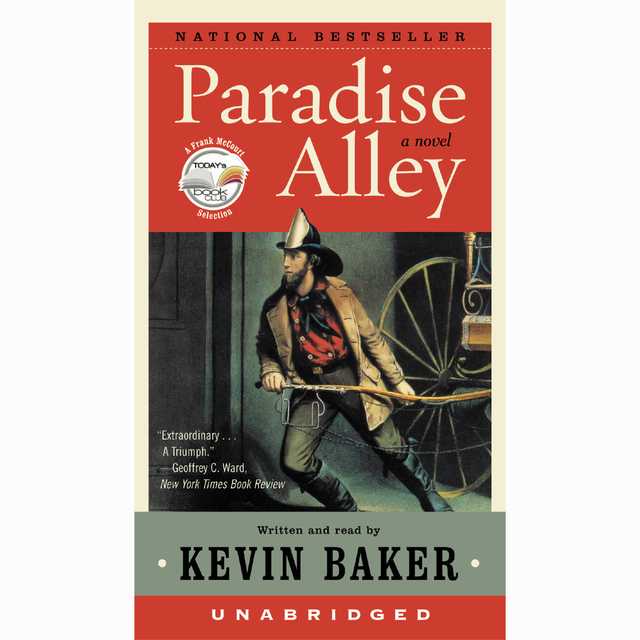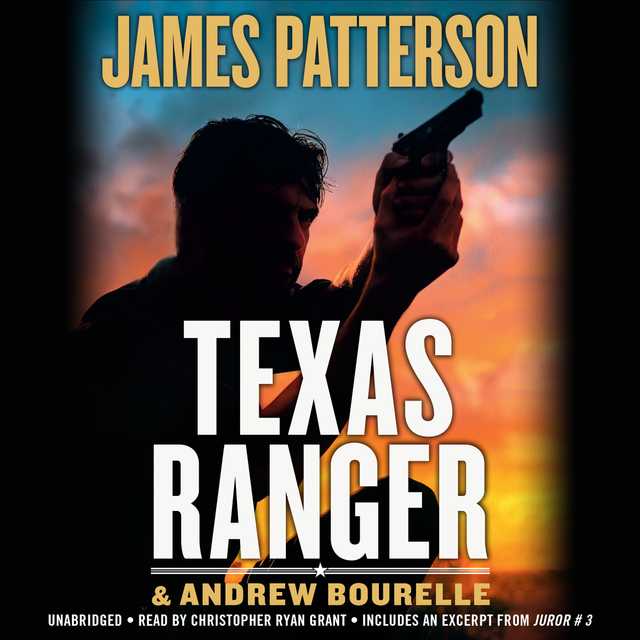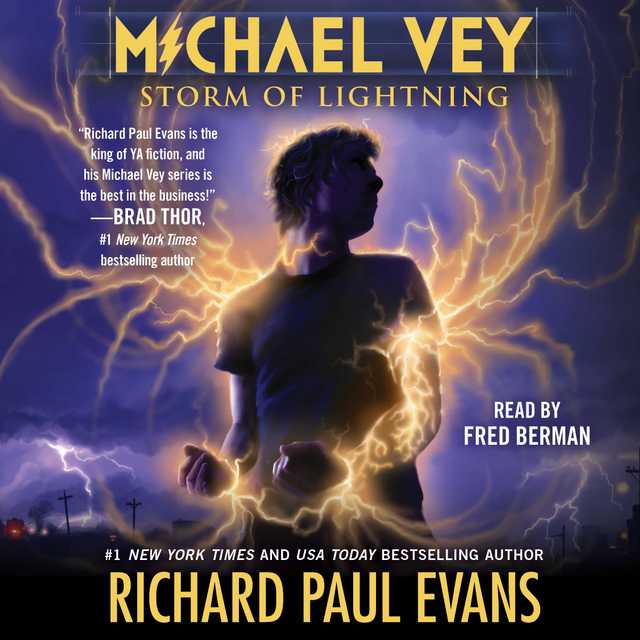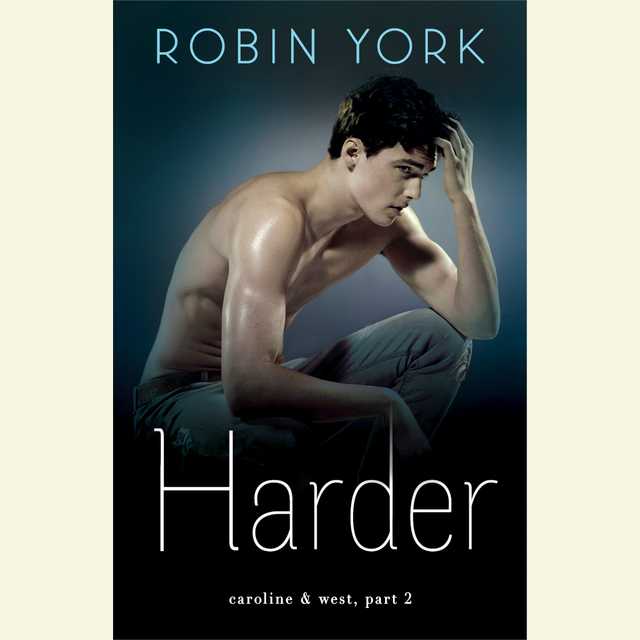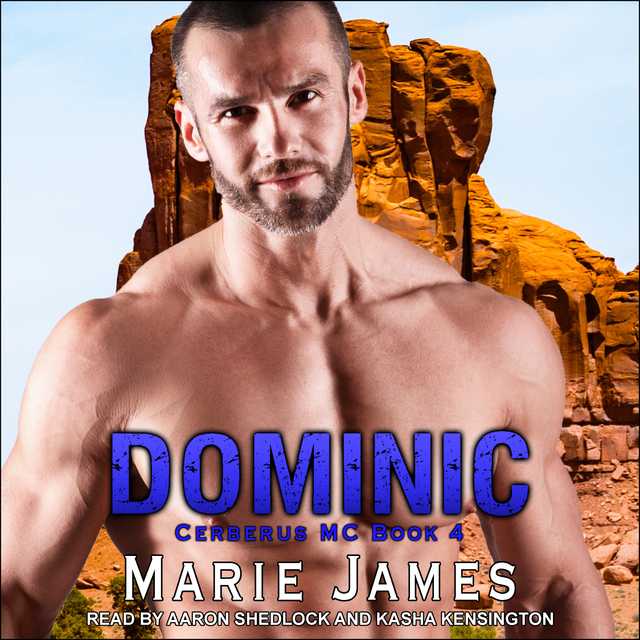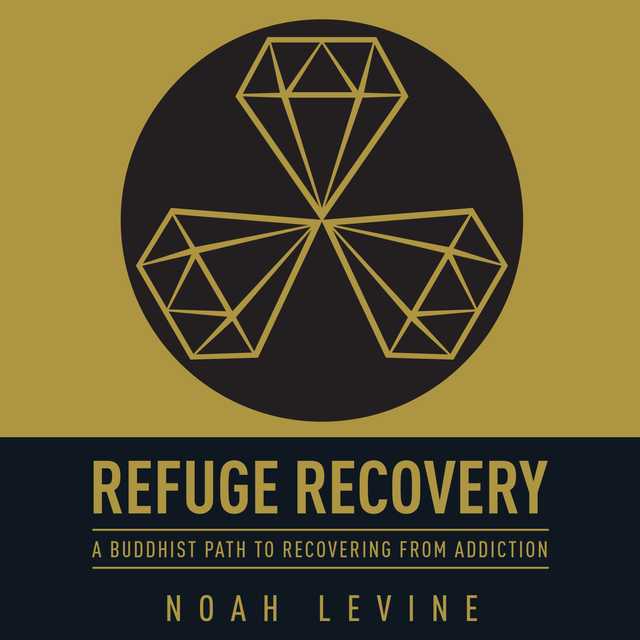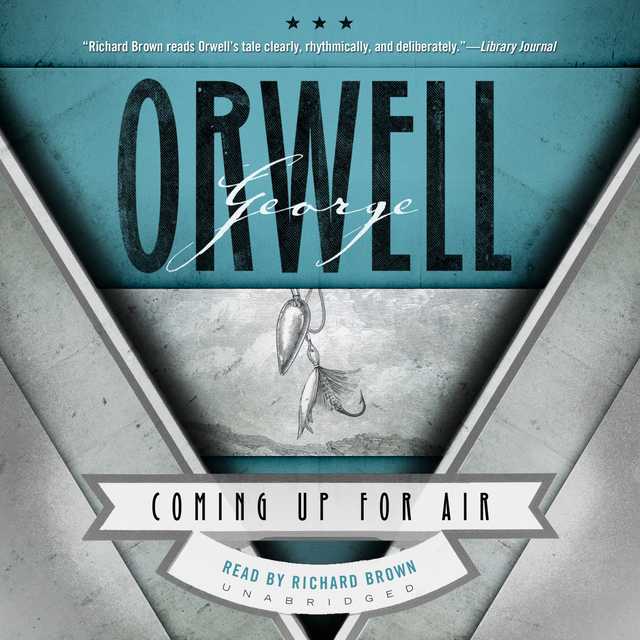Paradise Alley Audiobook Summary
At the height of the Civil War, word spreads through the poorest quarters of New York City that a military draft is about to be implemented — a draft from which any rich man’s son can buy an exemption. The outrage this inspires escalates into the worst urban conflagration in American history.
Down in the waterfront slum of Paradise Alley, three women — Deirdre Dolan O’Kane, Ruth Dove, and Maddy Boyle — struggle with their private fears as they wait for the storm to descend upon them. Deirdre, devastated by the news that her husband, Tom, has been wounded in Gettysburg, must turn for comfort and aid to two women she has always judged as morally depraved — Ruth, married to an ex-slave, and Maddy, a hard-living prostitute.
Other Top Audiobooks
Paradise Alley Audiobook Narrator
Kevin Baker is the narrator of Paradise Alley audiobook that was written by Kevin Baker
Kevin Baker is the bestselling author of the novels Dreamland, Paradise Alley, and Sometimes You See It Coming. He is a columnist for American Heritage magazine and a regular contributor to the New York Times, Harper’s, and other periodicals. He lives in New York City with his wife, the writer Ellen Abrams, and their cat, Stella.
About the Author(s) of Paradise Alley
Kevin Baker is the author of Paradise Alley
More From the Same
- Author : Kevin Baker
- Strivers Row
- The Big Crowd
- Dreamland
- Publisher : HarperAudio
- Abraham
- American Gods [TV Tie-In]
- Dead Ringer
- House of Sand and Fog
- Prey
Paradise Alley Full Details
| Narrator | Kevin Baker |
| Length | 22 hours 26 minutes |
| Author | Kevin Baker |
| Category | |
| Publisher | HarperAudio |
| Release date | April 04, 2006 |
| ISBN | 9780060889326 |
Subjects
The publisher of the Paradise Alley is HarperAudio. includes the following subjects: The BISAC Subject Code is Fiction, Historical
Additional info
The publisher of the Paradise Alley is HarperAudio. The imprint is HarperAudio. It is supplied by HarperAudio. The ISBN-13 is 9780060889326.
Global Availability
This book is only available in the United States.
Goodreads Reviews
Jody
January 08, 2008
I ran across this book by accident, and I am very glad that I did. Kevin Baker does an amazing job of bringing historical fiction to life. This novel takes place during the Civil War draft riots in the 19th century, and examines the events from a variety of perspectives. There are numerous storylines which intertwine at different point, and there are numerous characters that are developed. My only criticism was that it was difficult to follow the many different characters at first, but after a few chapters I was thoroughly hooked. Baker followed this book with two other novel in his "City of Fire" trilogy, Dreamland (which looked at New York City around the turn of the 20th century) and Striver's Row (which detailed the beginnings of a young Malcom X in Harlem in the 1940's). They are all three great novels.
Ron
November 11, 2013
Kevin Baker is quickly altering the landscape of American historical fiction. His first novel, Dreamland, burst into flames three years ago — a hypnotic portrayal of Coney Island designed to parallel the chaotic city of New York in 1911. His latest, Paradise Alley, stays on Manhattan, but it moves back to the Civil War, rescuing from national amnesia the worst riot in US history.Baker's descriptions of New York City could be more pungent only with scratch 'n' sniff inserts. While Dreamland rose into the lurid surrealism of the carnival, for this more grounded history, Baker has only to follow the ghastly imagination of the rioters, whose deeds he unearthed in contemporary newspaper accounts. Indeed, this mammoth book threatens Cormac McCarthy's position as the country's most violent novelist.The enormous story burns for just three days, but it generates so much heat that I expected the pages to disintegrate into ash as I turned them. "Day One" opens on July 13, 1863. A new law has made all able-bodied white men "eligible to be drafted by lot into Mr. Lincoln's army, and shipped south to the war. There to be fed on wormy hardtack, and salt pork, and butchered by incompetent generals while their families try to subsist on begging and government relief." For the thousands of poor Irishmen who've recently escaped starvation, the suppression of Southern rebels seems a distant irrelevancy.What particularly galls them, though, is the law's provision that any man can buy his way out of military service for $300. The builders, craftsmen, butchers, street sweepers, gasmen, longshoremen, clerks, and unemployed drunks — that is, virtually all the able-bodied men who can't afford to buy substitutes — complain that Lincoln has placed a price on their heads considerably lower than the value of a single Southern slave.With a million people packed into the tail end of Manhattan, enduring sanitation closer to the first century than to our own, "all that's needed is a match," the narrator notes. Already suspicious in a Protestant country with strong anti-Catholic prejudices, the men collecting nervously in bars and on street corners have no reason to doubt the incendiary rumors from the front:"I hear the abolitionists is puttin' all the good Irish men in the front lines," one says."I hear they're bringin' a hundred thousand freed slaves to the City, to take their jobs."Those rumors aren't quelled by the fact that men who enlist voluntarily are shipped out in chains to keep them from escaping and returning to collect another signing bonus.Everyone feels the tension in the air, the static electricity ready to ignite social unrest in a city already charged by strikes and uncontrolled inflation. City government flees, sensing the impending explosion, leaving 2,300 policemen — almost all Irish — to deal with whatever trouble may come from their fellow Irishmen.Meanwhile, the city's 6,000 firemen, also Irish, serve on a collection of viciously competitive teams. (Sometimes, men from five or six different fire houses fight for hours over an available hydrant while the building they've come to save burns to the ground.)When the city's toxic fumes of resentment and fear finally ignite, it's a ghastly conflagration, captured here in all its consuming savagery. Baker's extraordinary talent � even beyond his capacity to uncover such a mountain of grisly detail — is his ability to organize this chaos and dramatize it in a way that's sensible to us. Amid this hellish encyclopedia of mob crimes, he manages to run the story through the lives of a small collection of characters spread throughout the city.Much of the storytelling falls to Herbert Willis Robinson, a blindingly self-righteous writer for the New York Tribune, who hopes to raise himself to the level of real literature by bearing witness to the city's immolation. That grand task, though, is interrupted by his concern during the riots for Maddy Boyle, a prostitute on Paradise Alley, whom he's engaged in a grotesque Pygmalion fantasy.Maddy lives alongside Ruth Dove, a white woman married to a black man who finds himself trapped at the other end of the city when rioters begin lynching anyone they can find. His efforts to wend his way home through this furnace of hate � while trying to hide more than 200 black children from his employer's orphanage — provide some of the novel's most harrowing and heroic scenes. His wife, meanwhile, remains holed up in her house, trying to protect their own children not only from the mob but from her ex-lover, Dangerous Johnny Dolan, an engine of unstoppable vengeance who's returned to New York after 14 years.These various voices and perspectives, so sensitively drawn, allow Baker to swing between cool history and pot-boiling melodrama. Despite its length and complexity, the story moves clearly from battle to battle, around the city but also around the world and through the pasts of these characters — including gut-wrenching scenes of the potato famine, the Civil War front, prison life, and back alleys of prostitution and crime. Baker is a master at charting the conflicting political, social, and religious currents as they course through the city. Everywhere in his vision of the mid-19th century lie the expressions of slavery � some far more subtle than the South's "peculiar institution," but all hideously degrading.The brave survival of New York on Sept. 11, 2001, places the chaos of this black week in particularly sharp contrast. Baker's breathless tragedy of the city in flames can't help but inspire a profound appreciation for the progress we've made in everything from plumbing to racism. But the little crevices of kindness and self-sacrifice he discovers amid this holocaust are a reminder of the best qualities in the human heart. Once again, he's lit a fire under American history and made it burn with a roar.
Anthony
July 25, 2019
I felt the need to start this book on July 12th, since the events take place between July 13 - 15 in 1863. It was about as hot now as it was in the book. Reading historical fiction, I know I always say this, but it reminds me of how good we have it today. No matter what the hardships we may suffer today -- it can't be nearly as bad as it was before our time. Even today's homeless have much more resources at hand than folks did before. I'm not talking from experience (I've never been homeless) but I cringed all through the book to see how these people lived throughout the slums of NYC. And when times were tough, there weren't many options available to seek relief. So this book did a good job of describing life in the city during the Civil War, and the horrible tensions between the Irish and the government and the African Americans. I've heard briefly about the draft riot in NYC, but never knew its extent. I was not a fan of the writing style at first, but eventually I got used to it. It's multiple character perspectives, and constant back-and-forth timelines, as it dips into the past for backstory and slides right back to present. It's not confusing, just annoying. But the further I got into the book, I realized that this style kind of works, for the story being told, and the character development in a tale spanning 3 days. All in all, I enjoyed this book, and I look forward to reading more of Kevin Baker. In fact, I just got Dreamland in the mail, and added to my TBR.
Carl
May 15, 2012
Hot with fervor over Kevin Baker’s Dreamland I moved on to Paradise Alley. Even though much of Dreamland revolves around Coney Island, Baker’s attention is never far from the Lower East Side. And it is on the lower east side that Paradise Alley is located, though we’re moved back in time thirty or forty years for this one--the 1863 New York riots in response to the Civil War draft. Paradise Alley is a small street populated by a mix of economic and racial folks. We’re concerned with three households: 1) Dierdre and Tom O’Kane, she an Irish immigrant (nee Dolan) who escaped the famine somehow, he a native of wastrel ways rescued from such by his devout wife. 2) Ruth Dove an Irish immigrant who did not escape the potato famine (“Year of Slaughter” is what Baker entitles the chapters set there). In fact the back story of her meeting her cruel and criminal “husband” (Dangerous Johnny Dolan, Dierdre’s brother) and wandering through the devastated countryside. has the feel of a science fiction post-apocalyptic novel. The brutal Dolan is later replaced at Ruth’s side by her true husband and father of her children, escaped slave Billy Dove. and 3) Maddy Boyle, a not-quite-all there prostitute kept in her house by her “gentleman,” Herbert Willis Robinson, a reporter for Horace Greeley’s Tribune and sometime “paperback writer” of lurid tracts and tales. O’Kane is in the army, recovering from a Gettysburg wound when the riots begin, leaving his family vulnerable to the marauders. Ruth and her mixed race children are natural targets, also left unprotected when husband Billy is trapped uptown as the violence begins. She is also threatened by the rumored return of her violent lover of yore, come back for revenge from an exile Ruth helped arrange. Maddy is naturally in the crosshairs of the faux-moralists of the neighborhood, but the moreso because she includes black men in her clientele. Thus, the riots become an excuse for the violent expression of hostilities that would otherwise be contained, and which have nothing to do the ostensible issue of the draft. Thus does Baker create a great lesson in how to draw the reader into the personal side of a political issue. Baker ranges far and wide in both geography and time in the nearly seven-hundred pages of Paradise Alley, and we are treated to almost separate novels on each of these characters. As in Dreamland, we see seemingly disparate stories eventually merge, and it’s a marvelous bit of tale-telling Baker creates as we turn page after page wondering when and how these characters will connect. Wonderful, too, is the depth of history. I knew a bit about all this before I started. Or thought so. As it turns out, I didn’t know anything much. I didn’t know the depth or intensity of the racism that lay behind the riots. I knew you could buy your way out of the draft for $300. I didn’t know that one of the mottos of the rioters was “Sell a white man for three hundred, a nigger (price of a slave) for a thousand.” I knew nothing about the intense competition among the early fire-fighting companies and how they formed the social, economic, and political core of the Irish community. I knew nothing about the literally underground communities that inhabited the NYC sewers. Probably, they still do. Remember Ellison’s Invisible Man? I knew nothing about Seneca Village, the small black community that was among the real estate entities torn down to make way for Central Park. I knew nothing about the exhibit of plaster dinosaurs that dominated much of the early park. And, as the commercial says, much much more. All of which Baker weaves into the story without the slightest feeling of textbook information dumping. What keeps me from giving Paradise Alley the ringing endorsement I accorded Dreamland is its bulk. Although much of the backstory is fascinating, much of it interrupts the flow of the immediate problem--those riots. Who will to escape the random ire of the mobs and who won’t and how? It’s only Baker’s extraordinary skill that keeps the present from getting completely swamped by the past. Furthermore, I have a disagreement about the ending. There’s a logic to it that my head wouldn’t argue with, but my heart is with characters other than those to whom Baker directs our last gaze. So, in the end, I put Paradise Alley on a high plane. But if you have to choose, go to Dreamland.
Anna
January 20, 2013
I enjoyed "Dreamland," but thought "Paradise Alley" was better. His research into the time period was thorough and fascinating. For those who gave up or are thinking of giving up on "Paradise Alley": Be patient. It's a large, heavy book, but it's worth the time and energy.Organized by character (similar to Game of Thrones, but actually Irish rather than pseudo-Irish), each chapter follows a particular person over the course of the 1863 draft riots. The stories are overlapping and interwoven, sometimes as far back as the Old Country. Each character has his or her own voice: Herbert is slightly snooty and is well-educated; Ruth is simple but resourceful; Deirdre is proper and angular. Each person is real, complicated, and completely believable.Baker's research on the period is amazing. Not only does he capture the overt racism and the anti-draft fervor, he describes the widely varied home lives of the characters living on Paradise Alley itself to the upper class neighborhood Herbert lives in. His descriptions of Ireland during the famine are horrifying. He weaves the history into the story adeptly and mostly seamlessly, an ability rarely found among historical fiction authors.
Kathy
October 17, 2014
I found this historical novel to be well-written and carefully researched. The characters were interesting, and their intertwined stories very gripping. There were so many details that I had never been aware of from this time in history. I still can't believe that the people of New York City, even 140 years ago, lived in such horrific conditions. Baker pulls you into the city, and the story, by giving you a complete vision of the time period. For any person who has an interest in history, and a good story, this is the novel for you.
Tony
January 07, 2020
I grew up in northern NJ and have always lived and worked in the NJ / NY / CT area. Historical fiction is one of my faves. So... I found this book to be especially interesting. What was NYC like in the mid-1800’s? Impressive depiction and a good story as well. Informative and enjoyable.
Erin
June 10, 2009
Baker does a fine job capturing various character perspectives of this historical (fictional) account of the 1863 urban conflagration during the unrest of the Civil War. The horror of a mob is captured completely as one watches people who are benign most of the time, suddenly become terrors without
Paul Gaya Ochieng Simeon
August 16, 2016
Paradise Alley is a novel by Kevin Baker. The book is quite long. However, it does not mean that it is not readable. It is interesting. The characters include Ruth, Johnny Dolan, Billy Dove, Deirdre, Maddy and Robinson. It about the American civil war during the reign of Abraham Lincoln. The effects it had on both races, that is, blacks and whites. Through the eyes of the characters we are transported back to the seventeenth century and all we can see is the brutality of the war.
Anne
May 19, 2010
I really loved reading this book. I liked the way each chapter was told from a different character's perspective and the way the stories wove together. I learned new things about the history of our country and it made me want to read more, particularly about Irish immigration. It was a long book 600+ pages and only covered 3 days in time but it never felt tedious or drawn out.
Jason
August 13, 2007
One of my all-time great "accidental discoveries" when I worked in a bookshop. A fabulously readable story of Irish immigrants, freed slaves, and working class New Yorkers struggling to survive in the chaos of the city amid the violence of the Civil War Draft Riots of 1863.
Ann
January 30, 2008
I don't ever admit to being drawn to historical fiction...instead, I simply admit to liking good stories, better story tellers. So forgive me my T C Boyle...and this book....but this is one helluva book. I wept for the final 30 pages and I. Do. Not. Cry. Masterful story-telling broke me though.
Joe
January 15, 2009
Great story about the New York City draft riots.
Molly
March 12, 2009
One of my favorite books of all time. Undiscovered and underappreaciated. The characters are rich and emotional and the storyline is terrifying and beautiful all at once.
Frequently asked questions
Listening to audiobooks not only easy, it is also very convenient. You can listen to audiobooks on almost every device. From your laptop to your smart phone or even a smart speaker like Apple HomePod or even Alexa. Here’s how you can get started listening to audiobooks.
- 1. Download your favorite audiobook app such as Speechify.
- 2. Sign up for an account.
- 3. Browse the library for the best audiobooks and select the first one for free
- 4. Download the audiobook file to your device
- 5. Open the Speechify audiobook app and select the audiobook you want to listen to.
- 6. Adjust the playback speed and other settings to your preference.
- 7. Press play and enjoy!
While you can listen to the bestsellers on almost any device, and preferences may vary, generally smart phones are offer the most convenience factor. You could be working out, grocery shopping, or even watching your dog in the dog park on a Saturday morning.
However, most audiobook apps work across multiple devices so you can pick up that riveting new Stephen King book you started at the dog park, back on your laptop when you get back home.
Speechify is one of the best apps for audiobooks. The pricing structure is the most competitive in the market and the app is easy to use. It features the best sellers and award winning authors. Listen to your favorite books or discover new ones and listen to real voice actors read to you. Getting started is easy, the first book is free.
Research showcasing the brain health benefits of reading on a regular basis is wide-ranging and undeniable. However, research comparing the benefits of reading vs listening is much more sparse. According to professor of psychology and author Dr. Kristen Willeumier, though, there is good reason to believe that the reading experience provided by audiobooks offers many of the same brain benefits as reading a physical book.
Audiobooks are recordings of books that are read aloud by a professional voice actor. The recordings are typically available for purchase and download in digital formats such as MP3, WMA, or AAC. They can also be streamed from online services like Speechify, Audible, AppleBooks, or Spotify.
You simply download the app onto your smart phone, create your account, and in Speechify, you can choose your first book, from our vast library of best-sellers and classics, to read for free.
Audiobooks, like real books can add up over time. Here’s where you can listen to audiobooks for free. Speechify let’s you read your first best seller for free. Apart from that, we have a vast selection of free audiobooks that you can enjoy. Get the same rich experience no matter if the book was free or not.
It depends. Yes, there are free audiobooks and paid audiobooks. Speechify offers a blend of both!
It varies. The easiest way depends on a few things. The app and service you use, which device, and platform. Speechify is the easiest way to listen to audiobooks. Downloading the app is quick. It is not a large app and does not eat up space on your iPhone or Android device.
Listening to audiobooks on your smart phone, with Speechify, is the easiest way to listen to audiobooks.

